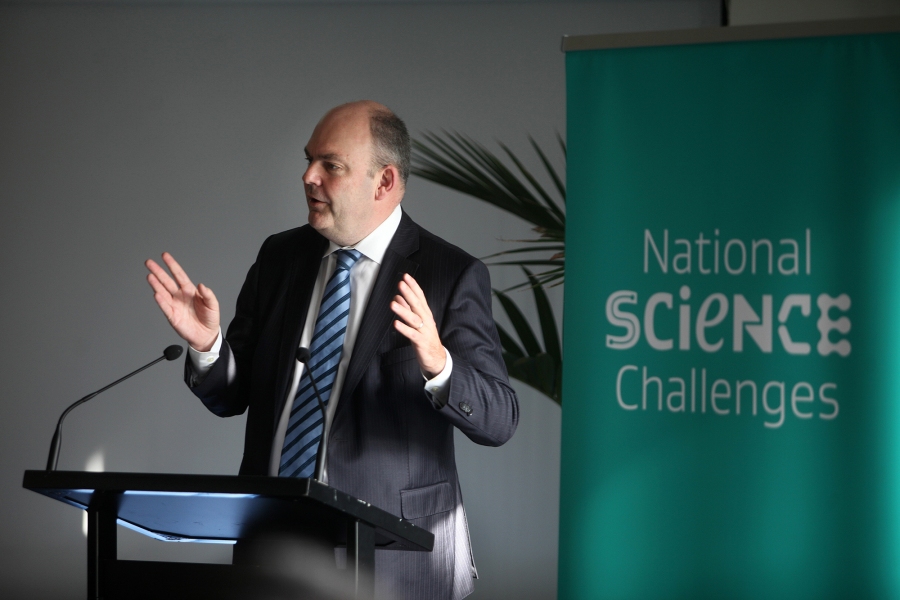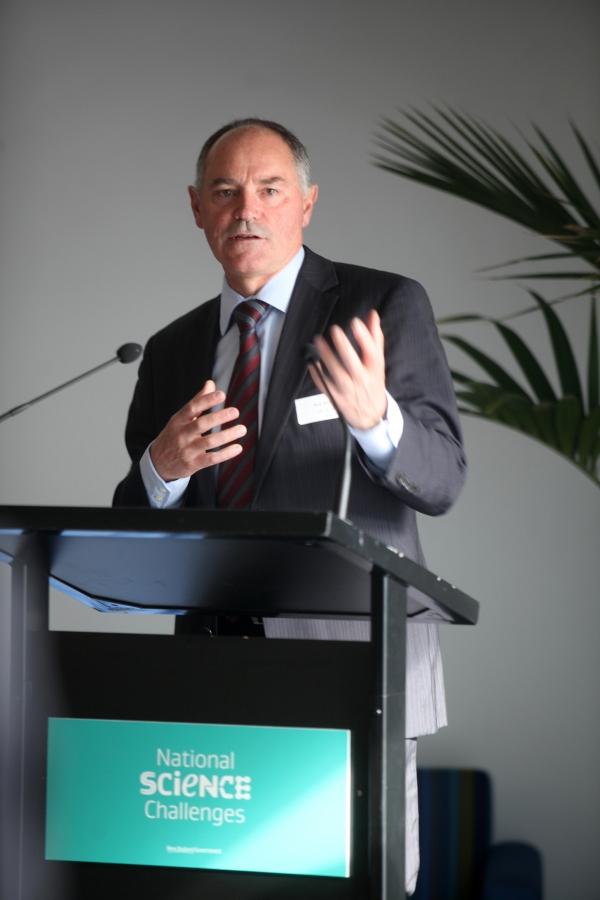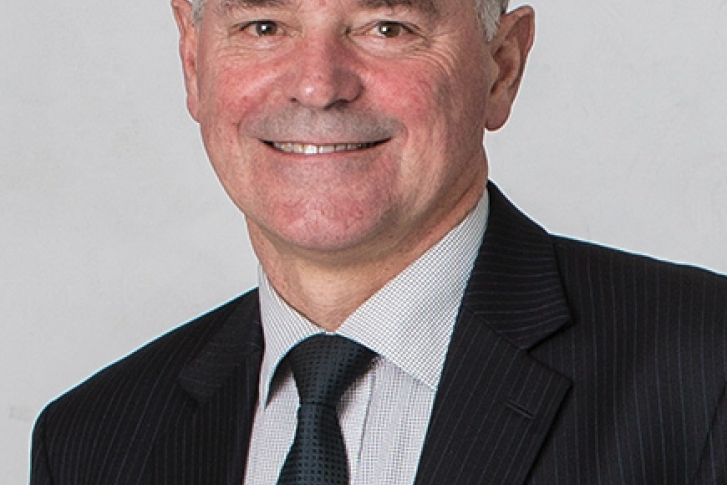The Government’s latest National Science Challenge announced today represents the single biggest investment in ocean-related research for New Zealand.
Science and Innovation Minister Steven Joyce today officially launched the Sustainable Seas National Science Challenge at Cawthron Institute in Nelson. The challenge is to be hosted by NIWA in partnership with Cawthron Institute, GNS Science, Victoria University of Wellington, and the universities of Auckland, Canterbury, Otago and Waikato.
“New Zealand is responsible for the fourth largest Exclusive Economic Zone in the world. With the extended Continental Shelf, our marine estate is more than 20 times the size of our land area,” says NIWA’s General Manager Research, Dr Rob Murdoch.
“This vast region supports enormous quantities of natural resources, much of which are yet to be explored or realised, including petroleum, minerals and renewable energy. Our marine environment also supports a range of economic sectors such as fisheries, oil and gas, tourism, aquaculture, shipping, and recreation. “This latest national science challenge provides the framework to work together across many disciplines to achieve a thriving marine economy with active stewardship and well informed protection of our marine ecosystems to reflect the aspirations, expectations and the agreed rights of New Zealanders now and for generations to come.”
The Sustainable Seas Challenge is one of 10 Government challenges designed to take a strategic approach to the most important scientific issues facing New Zealand. It will receive around $31.5 million in new funding over the next five years.
Cawthron Institute Chief Executive Charles Eason says “the challenge aims to bring about a paradigm shift in the way New Zealanders’ manage, view, and use their marine environment so we can fully realise the benefits of its resources while ensuring its ongoing protection.”
“Around 95 percent of New Zealand is effectively underwater. Before we can realise the opportunities presented by this vast ocean estate, we must overcome some real scientific hurdles and also better understand the many ways New Zealanders value our surrounding seas,” Professor Eason says.
Cawthron Institute Marine Scientist, Dr Chris Cornelisen, says the challenge has focused programmes that build on New Zealand’s areas of expertise and make the best use of our collective strengths. “The interface of ocean health and wealth is where some of the greatest challenges exist. While there is significant opportunity to grow New Zealand’s marine economy for the benefit of all New Zealanders, it must not be at the cost of our environment,” Dr Cornelisen says. “This science challenge presents an enormous opportunity to pool resources and knowledge to grow New Zealand’s economy, while also positioning New Zealand as the world leader in ocean stewardship and management of globally significant marine ecosystems and resources.” Page 2 of 2 Dr Murdoch says Māori participation, aspirations and values feature strongly in this challenge.
“Ultimately the programme seeks to achieve a strong element of kaitiakitanga (guardianship) as a foundation to future marine resource use. Māori, industry and communities are striving for a balance between guardianship and economic benefit. The Sustainable Seas Challenge provides the opportunity to navigate this waka together.”
The challenge consists of five key research programmes of Our Seas, Valuable Seas, Maori and the Sea, Dynamic Seas and Managed Seas. Together these programmes contribute to the challenge’s overarching goals of:
- Well managed and enhanced use of our marine resources
- A healthy and strong marine economy
- Marine industries operate effectively and responsively
- Māori values are included and the Māori marine economy is strong
- New Zealand is a world leader in sustainable marine production and stewardship
- New Zealand society understands and is engaged in marine issues.
Visit the Sustainable Seas Science National Science Challenge wesbite.
For more information please contact:
Dr Rob Murdoch General Manager Research, NIWA
Professor Charles Eason Chief Executive, Cawthron Institute
Dr Chris Cornelisen Coastal Sciences Manager, Cawthron Institute



